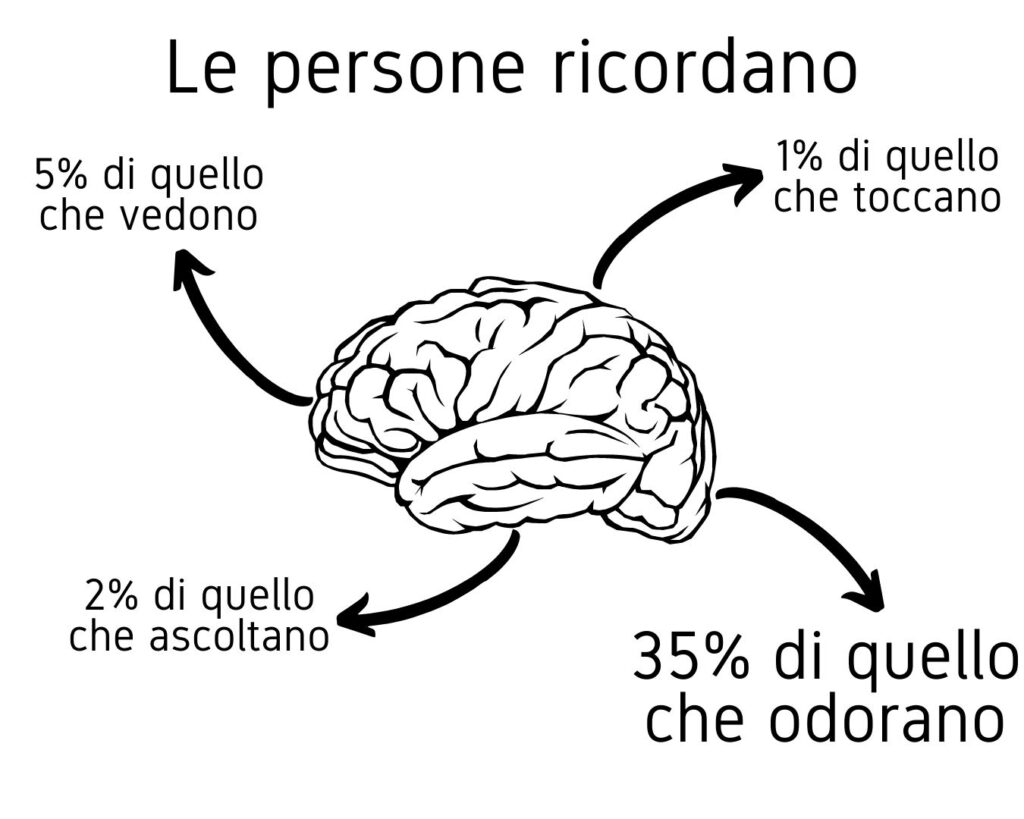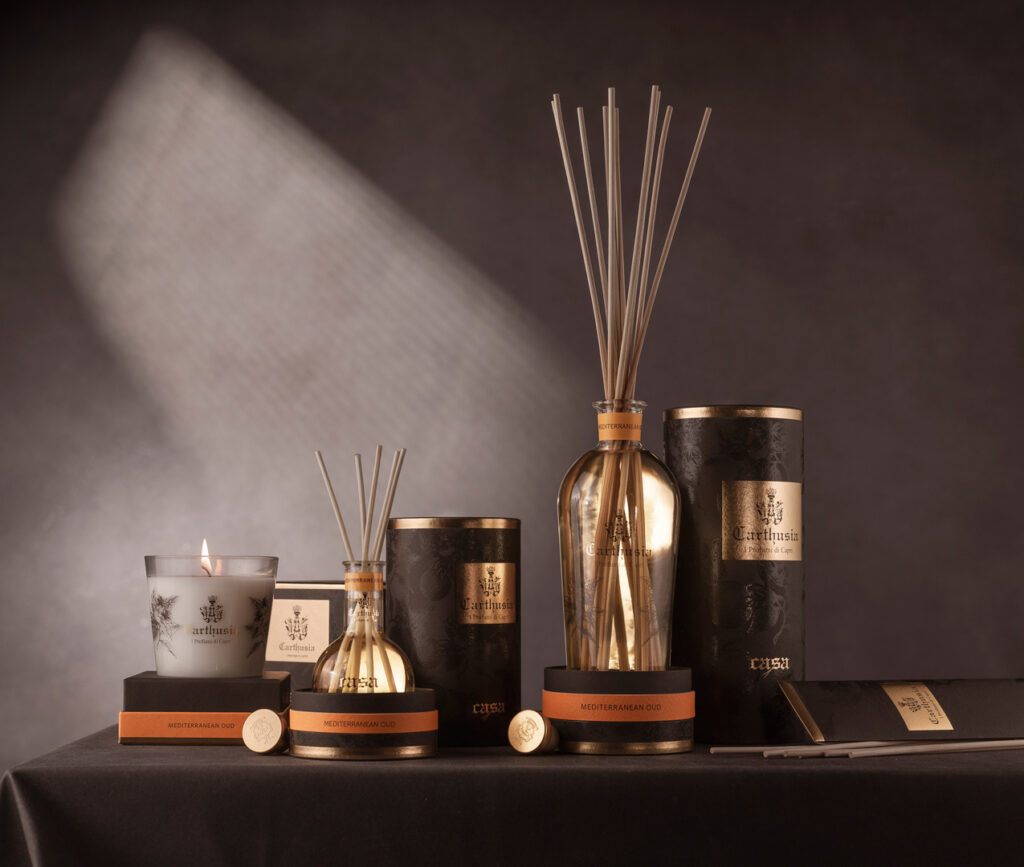Aromacology, aromatherapy, olfactory marketing: what power does perfume have?
For many people it represents a way to express their personality, to enrich their beauty routine, sometimes to get noticed and leave their mark in the crowd. And yet, have you ever thought about how perfume is above all a tool for relating to the world around us? Well yes, perfume exerts great power over each of us and over the relationships we have within society, and it has done so since Ancient Egyptian times, such as when Cleopatra used perfumed essences to impress Mark Antony and consolidate , thus, his position on the throne.
Indeed, in addition to their more immediate function of “perfuming”, fragrances also have secondary identity and social functions. In other words, they have the ability to define and influence a person’s character or identity, even determining their relationships within the social contexts in which they live. How true is it that an odor that is unpleasant to our sense of smell automatically creates in us a reaction of distancing ourselves from what emanates it, be it an individual or a food?
So let’s see what are the areas of application in which perfumes can exercise their power over us, our emotions and even our purchasing choices.
Olfactory Memory: The Power of Perfume Linked to Memories
It is known that a great power held by perfume is to evoke memories, sensations and emotions in each of us. The sense of smell manages to take us back with our minds, even years later: this is because since we were children all the smells we perceive are automatically stored in our brain, creating an infinite baggage of perfumes called olfactory memory. This precious tool manages to catapult us to the precise moment we smell that particular smell, allowing us to evoke it even after a long time.

According to a research carried out by the perfume expert Fred Dale, the sense of smell is the one that binds us most to memories, above all of childhood: while visual memory loses 50% of its effectiveness after 3 months, memories related to the olfactory sphere, they lose only 20% even after a year.
Aromatherapy: The Therapeutic Approach to Essences
Aromatherapy, or “essential oil therapy,” is a therapeutic approach that uses oils to prevent disease or treat ailments on a physiological, psychological, or spiritual level.
It takes place through massages or inhalation, with the use of mainly natural essential oils, extracted from plants, flowers, leaves but also resins or barks. The French chemist Gattefossé coined the term “aromatherapy” after an experimental work on some essential oils in an attempt to make cosmetics. Gattefossé, placing some lavender poultices on a burn, immediately noticed the benefits, giving life to the term still used today.
Nowadays aromatherapy is a practice widely used to improve physical and mental well-being, as it is able to relieve the symptoms of many physical problems. For example, mint and eucalyptus work on sore throats and coughs; peppermint, pine and basil on headaches; lavender, jasmine and sage for skin irritations, etc.
Aromacology: Perfumes for Spiritual Wellbeing
Aromacology is distinguished from aromatherapy in two respects. The first is that while aromatherapy uses only natural essential oils, aromacology also makes use of synthetic fragrances. The second aspect concerns the method of application: while aromatherapy uses massages, baths and inhalations, aromacology simply exploits the sense of smell. In a nutshell, the benefits of this practice are given by the simple inhalation of a fragrance or essence, which acts by relaxing the nervous system and positively influencing mood.
Developed in 1989 by the olfactory research fund better known as the “Sense of Smell Institute”, the discipline of aromacology is based on scientifically proven data. According to studies, each perfume or essence triggers a stimulus that acts directly on our state of mind: there are fresh scents, such as lavender for example, which can easily bring to mind the memory of grandma’s clean laundry, air of home, and therefore, positive emotions dating back to childhood. Conversely, perfumes that are too persistent can cause stress and agitation, generally feeling unwell.
For aromacology, the right room fragrance can prove to be an excellent ally to positively influence mood. For example, a citrus fragrance such as the lemon-based one can promote concentration in an environment dedicated to study or work; a rose-based one can bring benefits in terms of stress reduction; one based on jasmine infuses tranquility and serenity to the spirit.

Olfactory Marketing: the power of perfume as a marketing strategy
Scent marketing is one of the most innovative and effective market strategies, mainly used in closed environments such as stores or companies. Through the strategic use of perfumes, the objectives are:
– create an environment around the buyer in which he can feel pampered and inspired by positive sensations;
– improve the sales/purchase experience and make it memorable.
The perfumed essences that are diffused in these environments have the task of stimulating the sense of smell, triggering particular sensations and emotions in customers, collaborators or patrons of a location.
In this case, the sense of smell becomes a true means of communication and olfactory marketing a fundamental tool capable of positively influencing the customer’s purchasing behavior in a clothing store, or the experiential value of a visitor to a museum. It has been found that the strategic use of perfumes can increase the time spent by buyers in stores, and even increase sales.

